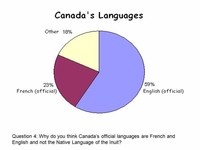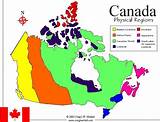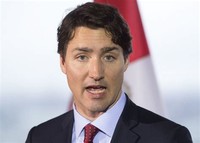Facts about Canada

The Canadian economy boomed as industry manufactured military materiel for Canada, Great Britain, China and the Soviet Union.

Canada was a major front in the War of 1812 between the United States and British Empire.

Strong attachment to the British Empire and Commonwealth in English Canada led to major participation in British military efforts in the Second Boer War, the First World War, and the Second World War.

The Constitution Act, 1982 added a Canadian Charter of Rights and Freedoms, which guarantees basic rights and freedoms for Canadians that generally cannot be overridden by legislation of any level of government in Canada.

Other prominent symbols include the beaver, Canada goose, common loon, the Crown, and the RCMP.

Mainland Nova Scotia came under British rule with the Treaty of Utrecht (1713); the Treaty of Paris (1763) ceded Canada and most of New France to Britain following the Seven Years' War.

Canada also has a sizable manufacturing sector centered in southern Ontario and Quebec, with automobiles and aeronautics representing particularly important industries.

Canada employs a professional, volunteer military force of about 64,000 regular and 26,000 reserve personnel.

Canada seeks to expand its ties to Pacific Rim economies through membership in the Asia-Pacific Economic Cooperation forum (APEC).
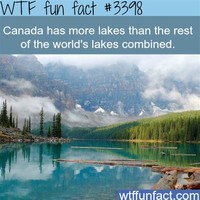
Canada by far has more lakes than any other country and has a large amount of the world's freshwater.

Atlantic Canada has vast offshore deposits of natural gas and large oil and gas resources are centred in Alberta.
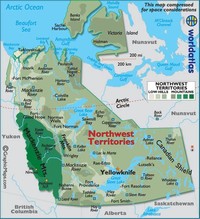
Three territories (Yukon, Northwest Territories, and Nunavut) comprise Northern Canada.
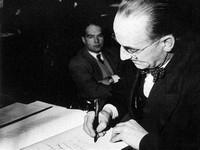
In 1949, Newfoundland joined the Confederation as Canada's 10th province.

Canada joined the United Nations in 1945 and became a founding member of NATO in 1949.

Canada's official national sports are ice hockey (winter) and lacrosse (summer).

Official Bilingualism in Canada is law, defined in the Canadian Charter of Rights and Freedoms, the Official Languages Act, and Official Language Regulations; it is applied by the Commissioner of Official Languages.

The Canada Act 1982 refers only to "Canada" and, as such, it is currently the only legal (and bilingual) name.

By total area (including its waters), Canada is the second largest country in the world, after Russia, and largest on the continent.

Canada was the host nation for the 2010 Winter Olympics in Vancouver and Whistler, British Columbia.

Average winter and summer high temperatures across Canada vary depending on the location.

Canada declared war on Germany independently during World War II under Liberal Prime Minister William Lyon Mackenzie King, three days after Britain.

Canada and the United States share the world's longest undefended border, co-operate on military campaigns and exercises, and are each others largest trading partners.

Canada has considered that area to be sovereign territory since 1925.

Canada is one of the world's wealthiest nations with a high per capita income, a member of the Organisation for Economic Co-operation and Development (OECD) and Group of Eight (G8).

In 1919, Canada joined the League of Nations independently of Britain; in 1931 the Statute of Westminster affirmed Canada's independence.

Canada has a free market economy with slightly more government intervention than the United States, but much less than most European nations.

Canada's 2006 census counted 31,612,897, an increase of 5.4 percent since 2001.

The name Canada comes from a Saint Lawrence Iroquoian word meaning "village" or "settlement."

Western Canada consists of British Columbia and three Prairie provinces (Alberta, Saskatchewan, Manitoba).

Later, it was split into two British colonies, called Upper Canada and Lower Canada until their union as the British Province of Canada in 1841.

The Act of Union (1840) merged The Canadian Provinces into the United Province of Canada.

According to Statistics Canada's forecasts, the number of visible minorities in Canada is expected to double by 2017.

Approximately 50,000 United Empire Loyalists fled the United States to Canada.

Canada is a country occupying most of northern North America, extending from the Atlantic Ocean in the east to the Pacific Ocean in the west and northward into the Arctic Ocean.
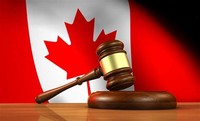
Criminal law is solely a federal responsibility and is uniform throughout Canada.

To accommodate English-speaking Loyalists in Quebec, the Constitutional Act of 1791 divided the province into French-speaking Lower Canada and English-speaking Upper Canada, granting each their own elected Legislative Assembly.
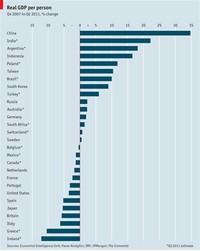
Canada has the highest per capita immigration rate in the world, driven by economic policy and family reunification; Canada also accepts large numbers of refugees.

Eastern Canada consists of Central Canada (Quebec and Ontario) and Atlantic Canada (comprised of the three Maritime provinces of New Brunswick, Prince Edward Island, and Nova Scotia; and Newfoundland and Labrador).

Today Canada closely resembles the US in its market-oriented economic system, pattern of production, and high living standards.

Canada launched a series of western exploratory expeditions to claim Rupert's Land and the Arctic region.

A gradual process of independence from the United Kingdom moved Canada towards statehood and culminated in the Canada Act 1982, severing the last vestiges of dependence on the British parliament.

The northernmost settlement in Canada and in the world is Canadian Forces Station (CFS) Alert on the northern tip of Ellesmere Island—latitude 82.5°N—just 817 kilometres (450 nautical miles) from the North Pole.
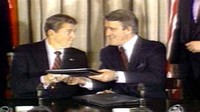
The 1989 Canada-US Free Trade Agreement (FTA) and 1994 North American Free Trade Agreement (NAFTA) (which included Mexico) touched off a dramatic increase in trade and economic integration with the US.

The Prime Minister and Cabinet are formally appointed by the Governor General (who is the Monarch's representative in Canada).

The Canada-United States Automotive Agreement (or Auto Pact) in 1965 and the Canada-United States Free Trade Agreement of 1987 were defining moments in integrating the two economies.

Canada has traditionally had a lower per capita gross domestic product (GDP) than its southern neighbor (whereas wealth has been more equally divided), but higher than the large western European economies.

Canada's constitution consists of written text and unwritten traditions and conventions.

Canada joined the Organization of American States (OAS) in 1990 and hosted the OAS General Assembly in Windsor in June 2000, and the third Summit of the Americas in Quebec City in April 2001.

The vast Athabasca Tar Sands give Canada the world's second largest reserves of oil behind Saudi Arabia.
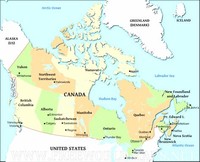
Canada is one of the world's most important suppliers of agricultural products, with the Canadian Prairies one of the most important suppliers of wheat, canola and other grains.

Toronto is Canada's most populous metropolitan area with 5,113,149 people.

Canada is highly dependent on international trade, especially trade with the United States.
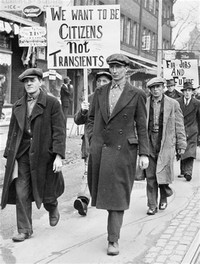
The Great Depression of 1929 brought economic hardship to all of Canada.

The Supreme Court of Canada is the highest court and final arbiter and is led by the Right Honourable Madam Chief Justice Beverley McLachlin, P.C.
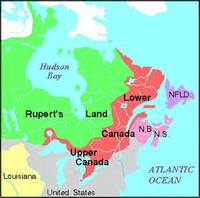
Canada assumed control of Rupert's Land and the North-Western Territory to form the Northwest Territories, where Mйtis' grievances ignited the Red River Rebellion and the creation of the province of Manitoba in July 1870.

Cartier used the word 'Canada' to refer to not only that village, but the entire area subject to Donnacona, Chief at Stadacona.

Canada has since served in 50 peacekeeping missions, including every UN peacekeeping effort until 1989 and has since maintained forces in international missions in the former Yugoslavia and elsewhere.

Judicial posts at the lower provincial and territorial levels are filled by their respective governments (see Court system of Canada for more detail).

By the 1990s and 2000s, the majority of Canada’s immigrants came from Asia.
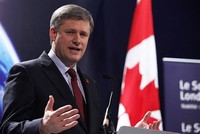
The position of Prime Minister, Canada's head of government, belongs to the current leader of the political party that can obtain the confidence of a plurality in the House of Commons.
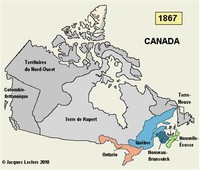
Upon Confederation in 1867, the name Canada was adopted for the entire country, and was frequently referred to as the Dominion of Canada until the 1950s.
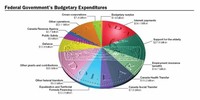
Using its spending powers, the federal government can initiate national policies in provincial areas, such as the Canada Health Act; the provinces can opt out of these, but rarely do so in practice.

Aboriginal burning appears to have been responsible for the widespread occurrence of savanna in tropical Australia and New Guinea and savannas in India are a creation of human fire use.
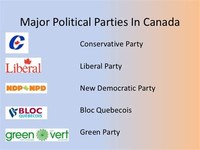
Canada's four major political parties are the Conservative Party of Canada, the Liberal Party of Canada, the New Democratic Party (NDP), and the Bloc Quйbйcois.

About three-quarters of Canada's population lives within 150 kilometres (90 mi) of the U.S.

Non-official languages are important in Canada, with 5,202,245 people listing one as a first language.
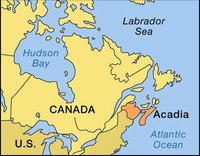
The French colony of Canada referred to the part of New France along the Saint Lawrence River and the northern shores of the Great Lakes.

Canada has nevertheless maintained an independent foreign policy, most notably maintaining full relations with Cuba and declining participation in the Iraq War.

American media and entertainment are popular if not dominant in Canada; conversely, many Canadian cultural products and entertainers are successful in the U.S. and worldwide.
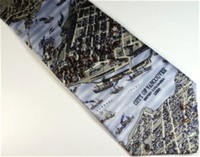
Canada also maintains historic ties to the United Kingdom and France and to other former British and French colonies through Canada's membership in the Commonwealth of Nations and La Francophonie (French-Speaking Countries).

Despite another Conscription Crisis in Quebec, Canada finished the war with one of the largest armed forces in the world.

Canada is a federation composed of ten provinces and three territories; in turn, these may be grouped into numerous regions.

All provinces have unicameral, elected legislatures headed by a Premier selected in the same way as the Prime Minister of Canada.

A federation now comprising ten provinces and three territories, Canada is a parliamentary democracy and a constitutional monarchy with Queen Elizabeth II as its head of state.

Following several constitutional conferences, the British North America Act brought about Confederation creating "one Dominion under the name of Canada" on July 1, 1867 with four provinces: Ontario, Quebec, Nova Scotia, and New Brunswick.

Canada has hosted several high-profile international sporting events, including the 1976 Summer Olympics, the 1988 Winter Olympics, the 2007 FIFA U-20 World Cup.

Roughly one out of every five people in Canada could be a member of a visible minority by 2017.

Canada automatically entered the First World War in 1914 with Britain's declaration of war, sending volunteers to the Western Front.
Johnston, indeed, joked that Canadians call Minnesota “Canada's 11th province,” and that Minnesota is a “home away from home” for Canadians. “This is a vitally important state for Canada,” he wrote. “We have a shared border, shared waterways, and a similar climate and environment.Jul 12, 2016
Royal New France. In 1604, the first European settlement north of Florida was established by French explorers Pierre de Monts and Samuel de Champlain, first on St. Croix Island (in present-day Maine), then at Port-Royal, in Acadia (present-day Nova Scotia). In 1608 Champlain built a fortress at what is now Québec City.Oct 26, 2015
The colony of New France was established in 1534 and was ceded to the United Kingdom in 1763 after the French defeat in the Seven Years' War. ... In 1867, the Province of Canada was joined with two other British colonies of New Brunswick and Nova Scotia through Confederation, forming a self-governing entity named Canada.
"Aboriginal" is a term that includes First Nations, Inuit and Métis peoples. In the 2011 National Household Survey, there were 1,836,035 people in Canada who reported having Aboriginal ancestry. This represents 5.6% of the Canadian population.Mar 13, 2014
Aubrey Drake Graham (born October 24, 1986) is a Canadian rapper, singer, songwriter, record producer, actor, and entrepreneur. Drake initially gained recognition as an actor on the teen drama television series Degrassi: The Next Generation in the early 2000s.
Chamber of Sober Second Thought. The Senate, in concert with the House of Commons, plays an important role in the operation of Canada's government. In theory, any piece of government legislation must be approved by both the House of Commons and the Senate (as well as the Canadian Monarch) for it to become official law.Jun 1, 2007
The Seven Years' War, a global conflict known in America as the French and Indian War, ends with the signing of the Treaty of Paris by France, Great Britain, and Spain. In the early 1750s, France's expansion into the Ohio River valley repeatedly brought the country into armed conflict with the British colonies.
The quality of education and living standards in Canada are amongst the highest in the world, but the cost of living and tuition fees for international students are generally lower than in other countries such as the United States and the United Kingdom.Jul 6, 2017
The name of Canada has been in use since the founding of the French colony of Canada in the 16th century. The name originates from a Saint-Lawrence Iroquoian word kanata (or canada) for "settlement", "village", or "land".
Find out how to go to Canada and how to apply for a visa through the services listed below:Visit. Apply to visit Canada for tourism or business or find out what you need to carry with you to transit Canada.Study. ... Work. ... Immigrate. ... Family sponsorship. ... My application. ... Inadmissibility. ... Permanent residents outside Canada.More items...
Canada's after-tax monthly income is about $3,000 which totals around $36,000per year. The U.S. sits just below Canada at approximately $2,942 per month, or roughly $35,300 per year. The real difference is seen in the cost of living. ... Finally, clothing is more expensive in Canada than in the United States.Oct 20, 2012
How much do new cars cost in the the U.S. and Canada?VehicleCAD MSRP (CAD)U.S. MSRP (USD)2013 Acura ZDX$56,750$50,9202014 Acura MDX (AWD)$49,990$44,2902014 Honda CRV (AWD)$28,290$24,1952013 Honda Civic Coupe$18,645$17,96518 more rows
The Vancouver Province reports that according to MJ Ervin & Associates' most recent weekly survey of fuel prices in Canada, regular gas was averaging 127.6 cents a litre in Vancouver last week, the fifth-highest price in Canada after Labrador City (130.9), Timmins (128.9), Yellowknife (128.4) and Montreal (127.8).Mar 9, 2011
We've done some research and have found that when the Canadian dollar is around par with the U.S. dollar and the exchange rate is taken into account, buying gas in the U.S. can be 20% - 25% cheaper than buying gas in Canada, so it's worth it to buy your gas in the U.S. if you live near the border or are driving to the ...
A 25-pack of cigarettes costs around $12 in Canada, but a 20-pack of cigarettes in the United States is only around $5. To be fair, cigarettes are taxed heavily in Canada, with the cost of cigarettes boasting taxes of 63 to 79% compared to New Yorkers, for example, who only pay 38%.Nov 25, 2010

